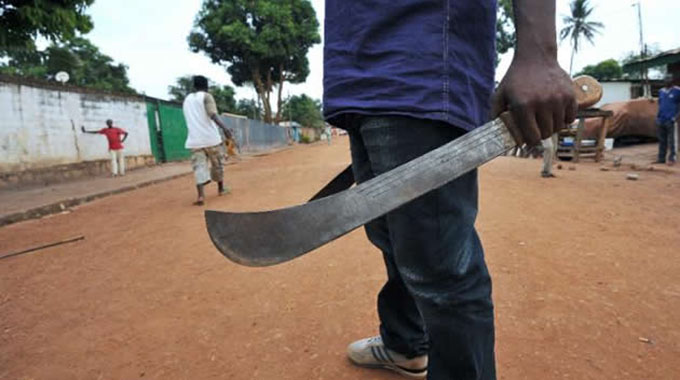EDITORIAL COMMENT : Zim at 40: Lessons from Gen Tongo

Forty is a cardinal number. As Zimbabwe prepares to welcome the New Year, which is the genesis of a new decade: 2020-2030, it does so under the realisation that before it turns 40 in 2020, there is an important 40th anniversary it had to commemorate on December 26.
On this tragic day in 1979, the legend and hero of the liberation struggle, General Josiah Magama Tongogara, popularly known as Cde Tongo, died in a road accident, as the ceasefire was just taking effect.
Forty years ago, Zimbabwe lost its own Che Guevara, Fidel Castro, Chris Hani, Samora Machel and other such heroes of the struggle that dislodged settler colonialism, rolled into one.
The man who commandeered the struggle as Chief of Defence in the Zimbabwe African National Liberation Army (Zanla), did not live to see a free, diverse, multicultural and prosperous Zimbabwe he fought for, despite witnessing the signing of the Lancaster House Agreement in London on December 21, 1979 that declared a ceasefire, to pave way for the first democratic elections.
However, through Cde Tongo’s life, Zimbabwe’s historical, economic, political, military and intelligence narrative can be collapsed in order to come up with an understanding of the past, present and the desired future.
Thus December 26 was epochal, because it marks not just 40 years since the death of this larger than life figure in Zimbabwe’s historical discourse, but it also created the desired foundation for the Second Republic’s aspiration to transform the nation through Vision 2030.
Nations thrive through the understanding of the narratives of their heroes and heroines.
The war of liberation was not a walk in the park, but the determination and resolve shown by people like Cde Tongo, to see a free Zimbabwe, is a clarion call for us all, to walk in unity and peace.
It was not easy for Cde Tongo and colleagues to fight an intransigent enemy, but for the love of the motherland, they did, and many were lost in the protracted struggle.
It was also not easy for General Tongo to lose his foot soldiers under scenarios where their families would not be informed.
It was not easy, and will never be easy.
They did not compromise and neither did they sell out. But when genuine opportunities to sit down with the enemy arose, they did not have gargantuan egos that could not be massaged.
They seized sincere chances for bringing the war to an end, in order to give people a respite.
That’s magnanimity.
Lessons can also be drawn from the Lancaster House talks where all parties, big and small, met and exchanged ideas for the common good of the country.
The same is currently underway through the Political Actors Dialogue (POLAD) that was initiated by President Mnangagwa for parties to bury their differences and map the way forward for the country.
Professor Simbi Mubako, who chairs the Josiah Magama Tongogara Legacy Foundation, in 2014 described Cde Tongo as “not just a legend, but . . . a country boy who rose to greatness through sheer determination and self-sacrifice, virtues that young men and women can emulate and achieve in their own walks of life.”
It is also unthinkable that a man whose parents worked for Ian Smith’s family at their Shurugwi farm, then going on to lead a formidable guerrilla force, that fought the Smith regime, would think that when dialogue presented itself, he would not be bigger than the people he was fighting for.
So much of Zimbabwe’s history is compressed in this giant of the struggle.
The popular saying that “life begins at 40” must be realised through the celebration of Cde Tongo’s life in this 40th anniversary.
The family announced that the celebration of this hero’s life in 2020 would be through multi-media exhibitions, lecture series, among other initiatives.
As Prof Mubako says, “In Gen Tongogara — leadership, confidence and humility were combined with humanity and compassion.”
This is a firm footing for the Second Republic and its quest to see Zimbabwe become a middle class economy by 2030.
And, they befittingly renamed King George VI Barracks to Josiah Magama Tongogara Barracks in honour of his enormous contribution to the liberation struggle and his dream of a united and prosperous Zimbabwe.











Comments